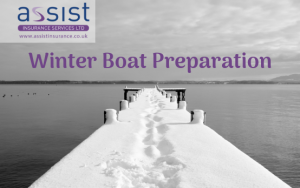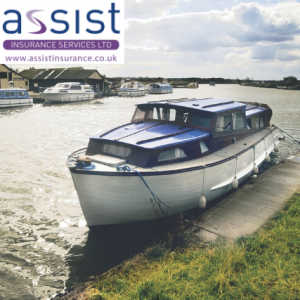RIB Insurance Guide
Whether you’re using your RIB for cruising, short trips, water skiing or diving expeditions, knowing that you have the right RIB insurance to meet your needs gives you peace of mind.
Whether you’re using your RIB for cruising, short trips, water skiing or diving expeditions, knowing that you have the right RIB insurance to meet your needs gives you peace of mind.
You may be thinking of buying a new or used narrowboat, or a wide-beam boat for cruising or exploring Britain’s beautiful rivers or canals. In most cases, boats are considered to be the second most expensive purchase you will ever make, so try not to rush the process.
Inflatable Boats – RIBs and SIBs – An Introduction. This blog looks at the differences between a RIB and a SIB, what they are used for and how to maintain them.
In choosing insurance for your boat, the type of storage you opt for is important. Keeping your boat secure and safe can be done in many different locations. The more secure, of course, the better.
Buying a boat is a large investment, so if you are considering purchasing one, it’s good to be thoroughly prepared.
If the time has come to sell your boat, the key to getting a good price for it is preparation.
Preparing your boat for the winter will help protect it from the elements of cold weather, making sure it’s ready to get back in the water when you are.
 If you’re not planning to use your boat over the winter months, then now’s the time to think about bringing it ashore and protecting it against whatever the elements have in store. Winter boat preparation is vitally important to reduce the need for expensive repairs in the spring. What you do depends on the type of boat of course, and it may be a familiar routine, but here is a reminder of some of the key points.
If you’re not planning to use your boat over the winter months, then now’s the time to think about bringing it ashore and protecting it against whatever the elements have in store. Winter boat preparation is vitally important to reduce the need for expensive repairs in the spring. What you do depends on the type of boat of course, and it may be a familiar routine, but here is a reminder of some of the key points.
Use these general tips to get you started, and please follow us on Facebook, Twitter and LinkedIn or have a look through our website for more tips.
 Our marine insurance policies cover all types of marine craft, from dinghies to jet skis, ribs, motorcruisers and yachts. They are sailed on rivers, lakes and seas all over the world. However in this blog post we focus on boating on the canals of Britain. We’ve found boaters to be committed enthusiasts who are happy to share their knowledge and love of boating. Whether you have a narrowboat, a widebeam or a livaboard, or you’re thinking about getting one, here are some of the reasons that our marine insurance customers choose to spend their time boating.
Our marine insurance policies cover all types of marine craft, from dinghies to jet skis, ribs, motorcruisers and yachts. They are sailed on rivers, lakes and seas all over the world. However in this blog post we focus on boating on the canals of Britain. We’ve found boaters to be committed enthusiasts who are happy to share their knowledge and love of boating. Whether you have a narrowboat, a widebeam or a livaboard, or you’re thinking about getting one, here are some of the reasons that our marine insurance customers choose to spend their time boating.
You can choose between continuously cruising – moving about the canal system and stopping in one place for no more than 14 days (according to the terms of a boating licence) or living aboard – residing in one place, such as a permanent canal-side mooring or marina. Alternatively, you can combine the two – perhaps cruising in the spring and summer then staying at a single base during the colder months. It may depend on where you work – having a weekday base then cruising at weekends and holidays or moving to different places depending on your working requirements.
Whether you stay in one place or move around, you soon feel part of the boating community. Many boaters are happy to share their experiences, knowledge and love of boating. The common lifestyle also engenders a feeling of respect for each other and each others’ property.
The canals support a wealth of wildlife and you’re in amongst it while you’re on your boat. This means that sightings of kingfishers, herons or even otters are much more likely than they would be if you were just out for an afternoon walk. You experience beautiful sunrises and sunsets, and the changing of the seasons. Even in the winter, there’s the joy of a sunny day or the beauty of frost on the banks and trees. With a good heating system, double-glazing and insulation, narrowboats, widebeams and livaboards can be very cosy. Good ventilation is also important to reduce condensation.
The cost of canal boats varies enormously, but if you’re downsizing from a house, it’s possible to have a lot of cash left over. You can live in some beautiful locations at a fraction of the cost of renting a house or flat. You’ll need a boating licence and there are mooring or marina fees and fuel to pay for, but it can be a very economical way to live.
With less room for personal possessions and limited housework or maintenance to do, there’s more time to enjoy the simple pleasures in life – like good company, home-cooked food and watching the sun go down. There are also some lovely canal-side pubs to visit! However, you can still benefit from the convenience of modern technology when you want to stay in touch with the wider world.
For peace of mind and value for money, many boaters choose Assist Insurance to insure their boat. We’re specialists in the leisure sector and we take time to understand our customers, tailoring our policies to ensure that they meet your needs. Explore our website and discover why boaters insure with Assist Insurance.
To stay up to day with news from Assist Insurance, you can follow us on Twitter, Facebook and LinkedIn.

Address: Royal House, Queenswood, Newport Pagnell Road West, Northampton NN4 7JJ
Phone: 01604 946 779
Email: info@assistinsurance.co.uk
We value your privacy
We use cookies to improve your experience of this website by remembering your usage preferences, collecting statistics, and targeting relevant content.
If you continue to use this site we’ll assume you’re happy to receive all cookies.
We may request cookies to be set on your device. We use cookies to let us know when you visit our websites, how you interact with us, to enrich your user experience, and to customize your relationship with our website.
Click on the different category headings to find out more. You can also change some of your preferences. Note that blocking some types of cookies may impact your experience on our websites and the services we are able to offer.
These cookies are strictly necessary to provide you with services available through our website and to use some of its features.
Because these cookies are strictly necessary to deliver the website, refusing them will have impact how our site functions. You always can block or delete cookies by changing your browser settings and force blocking all cookies on this website. But this will always prompt you to accept/refuse cookies when revisiting our site.
We fully respect if you want to refuse cookies but to avoid asking you again and again kindly allow us to store a cookie for that. You are free to opt out any time or opt in for other cookies to get a better experience. If you refuse cookies we will remove all set cookies in our domain.
We provide you with a list of stored cookies on your computer in our domain so you can check what we stored. Due to security reasons we are not able to show or modify cookies from other domains. You can check these in your browser security settings.
We also use different external services like Google Webfonts, Google Maps, and external Video providers. Since these providers may collect personal data like your IP address we allow you to block them here. Please be aware that this might heavily reduce the functionality and appearance of our site. Changes will take effect once you reload the page.
Google Webfont Settings:
Google Map Settings:
Google reCaptcha Settings:
Vimeo and Youtube video embeds:
You can read about our cookies and privacy settings in detail on our Privacy Policy Page.
Privacy Policy
